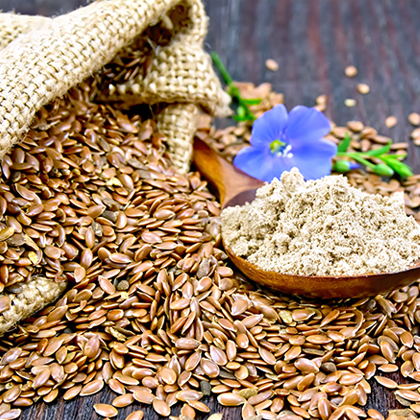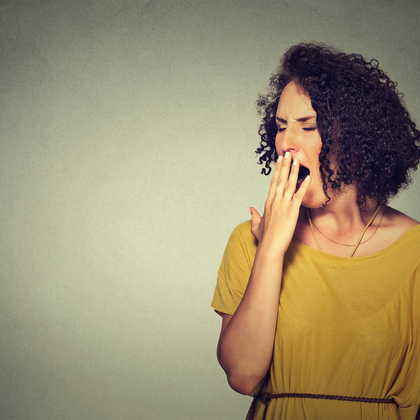
Many women report sleep troubles and insomnia throughout perimenopause and sometimes, postmenopause. This includes night sweats, sleep-disordered breathing and mood changes.
Quality rest is, arguably, the most important pillar of health, so sleep problems can be hugely incapacitating. A lack of sleep can lead to or, indeed, exacerbate, anxiety, irritability, fatigue, and cognition — areas menopause is commonly known to affect already.
We have outlined the best natural remedies to optimise your sleep hygiene and overcome menopausal insomnia.
Lifestyle tips
Besides natural remedies and supplements, you may also benefit from making simple changes to your sleep hygiene.
-
Get enough morning sunlight: Exposure to morning sunlight is a fundamental component of our evolutionary heritage. It helps to calibrate our internal, 24-hour circadian clock and prepare the body for rest at night by supporting the secretion of melatonin, our sleep hormone.
-
Enjoy your caffeine before noon: All drugs have a half-life (the time it takes for its initial level of impact to reduce by 50 per cent): caffeine has a half-life of six hours. This means that if you have a coffee at 4 pm, the caffeine will still be in your system around bedtime. To support sleep hygiene, enjoy your caffeine before midday.
-
Establish a healthy bedtime routine: Following the same rituals every night, 30-90 minutes before bed, educates your body and mind to wind down for rest. This routine should be relaxing. It may include having a hot bath, lighting an aromatherapy candle, practising deep breathing or meditation, reading a book by a soft lamp, or writing in your gratitude journal.
-
Ensure your bedroom is a place of total darkness: Darkness signals to our brains that it needs to prepare for rest. It triggers the secretion of melatonin: the hormone chiefly responsible for inducing sleep.
Valerian Root
Valerian root is traditionally used for the relief of sleep disturbances and mild anxiety. This herbal remedy has long been associated with restorative sleep due to its interaction with gamma-aminobutyric acid (GABA), a neurotransmitter that calms nerve activity and promotes feelings of relaxation (1). Valerenic acid, a primary constituent of valerian root, prevents GABA breakdown in the brain, inducing a state of restfulness (2).
 Low GABA levels are often linked to chronic stress, anxiety and poor sleep quality (3).
Low GABA levels are often linked to chronic stress, anxiety and poor sleep quality (3).
To support your sleep hygiene in menopause, take 1-2 tablets of valerian root extract (300mg) half an hour before bedtime.
Magnesium
Magnesium plays a multifaceted role in the body, it aids sleep by activating the parasympathetic nervous system, the biological network responsible for helping you feel calm and relaxed (4).
Like valerian root, magnesium also increases gamma-aminobutyric acid (GABA). For this reason, magnesium is widely touted to support the reduction of anxiety, which inhibits good sleep hygiene and commonly arises during the menopausal transition (5). Findings also show that low magnesium may lead to insomnia and disrupted sleep (6).
Consider taking 375mg of magnesium daily to help optimise your sleep in menopause.
5-HTP
5-HTP is involved in the production of serotonin – another critically important neurotransmitter that governs the sleep-wake cycle. Serotonin indirectly supports the secretion of melatonin, your sleep hormone (7). Melatonin works with serotonin to regulate your circadian rhythm — your 24-hour biological clock — and prime your body for restful sleep.
5-HTP may improve sleep quantity and reduce sleep latency – the time it takes to fall asleep (8).
Consider taking one tablet (100mg) half an hour before bed for a restful sleep. Start with one tablet and increase if necessary. Take 5-HTP for up to 3 months and then stop for a month to review.
Theanine and Lemon Balm Complex
L-theanine may improve sleep quality by supporting normal mental function. Beyond increasing the feel-good neurotransmitters, serotonin and dopamine, this amino acid also elevates GABA (9). These calming brain chemicals help to regulate emotions and mood, which may inspire the relaxation needed for sleep.
Lemon balm is also known for its soothing properties, helping to prime the body for rest. In one study, researchers revealed that supplementing children with lemon balm and valerian improved their insomnia symptoms by a remarkable 70-80 per cent (10).
In combination, L-theanine and lemon balm are a powerful duo that may promote relaxation and aid quality sleep in menopause. Try supplementing with a quality Theanine & Lemon Balm Complex, delivering 200mg and 600mg, respectively.
Tart cherry juice
There’s some evidence to suggest that tart cherry juice may also support sleep health due to its role melatonin production. In a 2012 study, scientists observed that participants who consumed two servings of tart cherry juice daily saw an increase in their sleep efficiency and overall sleep time compared to their placebo-taking counterparts (11).
In addition, recent findings suggest that drinking two daily glasses of tart cherry juice may extend sleep by 84 minutes each night, which may be useful for anyone experiencing insomnia in menopause (12).
To support your overall sleep hygiene in menopause, consider taking 10ml (2 teaspoons) daily – one with your evening meal.
PEA for sleep
PEA is an endocannabinoid-like compound found in almost every cell, tissue, and fluid. Naturally produced when cells are damaged or threatened, PEA is a well-researched alternative to CBD and a popular choice to support sleep hygiene (13).
Aside from 400mg of Palmitoylethanolamide, this formula also includes vitamins B12, B6 and B1, all of which contribute to the normal functioning of the nervous system and normal psychological function, making it an even better addition for sleep in menopause.
As with any health concern, it’s a good idea to find a combination of sleep remedies that cater to your individual needs. For instance, if anxiety and stress are at the root of your sleep troubles, you may benefit more from taking magnesium, theanine and lemon balm, or valerian root.
More on menopause
Explore the rest of our Menopause hub to learn more about managing your health in menopause.
References:
-
Abdou A. et al., Relaxation and immunity enhancement effects of γ-Aminobutyric acid (GABA) administration in humans. BioFactors. 2006;26(3):201-208.
-
Benke D. et al., GABAA receptors as in vivo substrate for the anxiolytic action of valerenic acid, a major constituent of valerian root extracts. Neuropharmacology. 2009;56(1):174-181.
-
Ballenger D. Effect of Acute Psychological Stress on Prefrontal GABA Concentration Determined by Proton Magnetic Resonance Spectroscopy. Yearbook of Psychiatry and Applied Mental Health. 2012;2012:313.
-
de Baaij D. et al., Magnesium in Man: Implications for Health and Disease. Physiological Reviews. 2015;95(1):1-46.
-
(5) The Effects of Magnesium Supplementation on Subjective Anxiety and Stress—A Systematic Review. Nutrients. 2017;9(5):429.
-
Boomsma D. The magic of magnesium. Int J Pharm Compd. 2008;12(4):306-9
-
Psychology Today. (2019). Better Sleep with 5-HTP. Available online: https://www.psychologytoday.com/gb/blog/sleep-newzzz/201710/better-sleep-5-htp
-
Hong. K, Park. Y, Suh. H. Sleep-promoting effects of a GABA/5-HTP mixture: Behavioral changes and neuromodulation in an invertebrate model. Life Sciences. 2016;150:42-49.
-
Williams J. et al., <span itemprop="name l-Theanine as a Functional Food Additive: Its Role in Disease Prevention and Health Promotion. Beverages. 2016;2(2):13.
-
Muller. S., Klement S., A combination of valerian and lemon balm is effective in the treatment of restlessness and dyssomnia in children. Phytomedicine. 2006;13(6):383-387.
-
Howatson G. et al., Effect of tart cherry juice (Prunus cerasus) on melatonin levels and enhanced sleep quality. European Journal of Nutrition. 2011;51(8):909-916.
-
Losso J. et al., Pilot Study of the Tart Cherry Juice for the Treatment of Insomnia and Investigation of Mechanisms. American Journal of Therapeutics. 2018;25(2):e194-e201.
-
Rao. A, Ebelt. P, Mallard. A et. al.,. Palmitoylethanolamide for sleep disturbance. A double-blind, randomised, placebo-controlled interventional study. Sleep Sci Pract. 2021;5(1):12. doi: 10.1186/s41606-021-00065-3. Epub 2021 Sep 10. PMID: 34522787; PMCID: PMC8428962.
You Might Also Like
Disclaimer: The information presented by Nature's Best is for informational purposes only. It is based on scientific studies (human, animal, or in vitro), clinical experience, or traditional usage as cited in each article. The results reported may not necessarily occur in all individuals. Self-treatment is not recommended for life-threatening conditions that require medical treatment under a doctor's care. For many of the conditions discussed, treatment with prescription or over the counter medication is also available. Consult your doctor, practitioner, and/or pharmacist for any health problem and before using any supplements or before making any changes in prescribed medications.

Olivia
Olivia Salter has always been an avid health nut. After graduating from the University of Bristol, she began working for a nutritional consultancy where she discovered her passion for all things wellness-related. There, she executed much of the company’s content marketing strategy and found her niche in health writing, publishing articles in Women’s Health, Mind Body Green, Thrive and Psychologies.
View More



